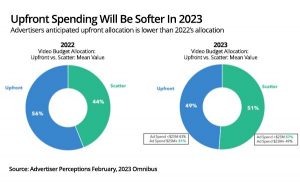Search Engines Fail To Gain Trust Of Internet Users
Only 3% of the 1,000 internet users surveyed between the ages of 18 and 35 say they trust search engines like Google or Bing to keep their data safe and private. Just 4% trust social sites like Facebook, and 6% trust email providers like AOL, Yahoo or Gmail.
Blue Fountain Media commissioned a survey through SurveyMonkey in May 2018 to show brands the importance of protecting consumer data. The 1,000 survey participants, ages 18 to 35, were consumers found across the internet, not the customers of agency clients.
Overall, 90% of the internet users in the U.S. said they are concerned about privacy, yet only 5% are willing to give up technology like Amazon Echo and Alexa, or Google Home and Assistant.
Ironically, internet users want the ability to use the devices to search for information via their voice, but they are not willing to spend the time to read or hear the fine print that tells them how their data will be collected and used.
Consumers have more trust in other types of sites than they do in search engines and social sites. When it comes to keeping their personal data most secure, 21% trust online banking or financial institutions the most, while 18% feel safe on government sites and 17% say credit card companies are secure.
Overall, the study also found that more than 40% “feel hopeless and worried” that their private information is being shared with dangerous people.
“I invited Google into my home,” said Brian Byer, vice president of business development at New York-based digital agency Blue Fountain Media. “I ask her the temperature and weather and she’ll tell me. Having that connivance is worth having an open mic at my house all day long.”
While 58% will not download an app if it enables microphone use, only 5% of respondents claim to have ditched their Alexa because their microphone is always enabled.
People will download apps without reading the terms and conditions and without understanding what happens with their data. Some 60% of people polled do not read the T&Cs, and 20% download the app even when they read and don’t like them.
A smaller percentage will delete the app once they realize that it accesses their camera and tracks their location. Users in apps like Uber can disable functions until they are ready to use them, but some people just don’t know how.
In addition to search engines, close to 82% of those surveyed do not feel confident that online retailers keep their info safe; and 37% think giving companies access to personal information makes surfing the web, staying in touch with friends and shopping easier and more personalized. The study also found that even 31% of respondents create another email account just for signing up for services.
It doesn’t need to be that way, Byer said. Brands need to be open with customers, give them ways to opt in and opt out, and have an open relationship for a stronger partnership.
(20)






